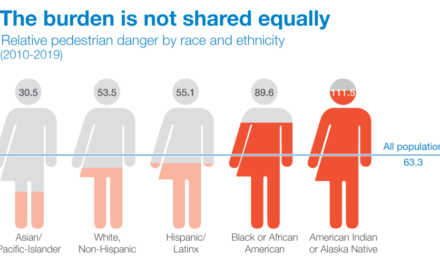Thumbnail: In their joint meeting last week, a majority of Memphis City Council members and Shelby Commissioners have served notice that business as usual is no longer good enough. The challenge now is to see if EDGE and the Chamber got the message.
**
The Greater Memphis Chamber PR machinery came face-to-face Thursday with the growing political urgency to reform the Memphis and Shelby County PILOT programs.
The dichotomy was striking and arguably predictable. It suggested that the Chamber hasn’t yet recognized that this process to improve PILOTs is not like the others where it has been successful in pushing back against any substantive change in the program.
In the second meeting last week of the joint committee examining the PILOT program, It appeared that a majority of the members of Memphis City Council and Shelby County Board of Commissioners are saying they have no patience with business as usual.
For the first time in memory, the legislative bodies, which delegated their power to waive property taxes in the first place, were armed with specific proposals like increasing the minimum hourly wage for a PILOT from $13 to $17, as proposed by Council members Martavius Jones and Patrice Robinson.
Mr. Jones also made the case for a cost-benefit analysis of every PILOT and if one falls below a prescribed threshold, it would require legislative approval. Legislative approval always sends shudders through economic development officials although it is done in many places, including other major Tennessee cities.
Facts, Not Opinions
Although Council member Worth Morgan was chief defender of the status quo and generally provided anecdotal information and opinions in support of making no changes, the facts are indisputable. While apologists for the present program offer up the beneficiaries of the local largesse who of course endorse it, no one can explain, if the PILOT program is so effective, why our economic indicators continue to languish and why we are losing ground when compared to our competitors.
The tendency to respond to legitimate concerns of local legislators with platitudes and talking points is a feature of these kinds of debates, but this time around, Council members and commissioners appear undeterred by the pro forma answers. They’ve heard them all before.
That said, Chief Economic Development Officer Ted Townsend was a breath of fresh in comparison to Chamber bromides. He presented slides showing how poorly our community is measuring up when compared to the results in competitor cities.
It was a dose of candor by Mr. Townsend, who has been in his job with the Chamber for about eight months. He’s also been working since January, 2018, as chief economic development and government relations officer at University of Memphis. Before that, he was deputy commissioner and chief operating officer at the State of Tennessee Department of Economic and Community Development while commuting to Nashville from Memphis.
We Already Knew Most Of What We’re Told
The value of the partnership between the university and the Chamber remains to be proven, but injecting the university more directly into economic development of the community seems a positive thing as long as it can project objectivity and act as a credible source of independent data.
It’s a tightrope which Mr. Townsend was able to walk in his comments during the joint committee meeting. The slides of data that he presented are easily available but it’s telling that his candid presentation was the first time in memory that they’ve been discussed at a public meeting on economic development.
The lack of transparency of our economic facts of life has been a telling failure of the system, breeding suspicions of a coordinated effort by the players to keep the evidence of our community’s failing economic development efforts in the dark.
Mr. Townsend said that companies make investment decisions based on factors like talent, infrastructure, industry presence, regulatory environment, real estate, and livability after lining up their needs to the community’s assets. It was of course interesting that the listing didn’t include tax breaks and incentives, but research has shown over the years that they chart low on the list of key factors influencing corporation locations.
He said that the Chamber – and presumably University of Memphis – are focusing their recruitment on logistics, transportation, emerging technology, medical devices, business headquarters, music, and food and agribusiness. These seem to be the suggested clusters from the 2019 Mass Economics study for the Chamber, but they don’t really deviate much from earlier studies like the 2013 Brookings Institution’s Backdrop for Transforming the Metropolitan Memphis Economy, the 2006 Memphis Fast Forward economic development plan, and the 2001 Memphis Sourcebook by Michael Gallis.
It’s not like we haven’t known for many years what our priorities should be. Meanwhile, the PILOT program in those same years changed little, and the Memphis region continued to rank near the bottom of the 50 largest metros in economic performance.
Dashboard As An Answer
In the joint meeting, Chamber officials touted its selection, along with Orlando and Indianapolis, in the Brookings Institution’s Inclusive Economics Lab as a sign of progress in economic development (although little was done to execute Brookings’ plan from eight years ago). The cities for the latest Brookings’ program were selected March 2, 2020, according to the Indianapolis Chamber of Commerce website (the Memphis Chamber doesn’t include dates on its posts).
The latest Brookings program is mainly about creating dashboards for tracking and driving economic outcomes, and while it would seem that the Chamber could have done this years ago on its own, it’s a welcome step. Much of the data is likely to resemble the Brookings’ Metro Monitor dashboard, and while Brookings is adept at bromides in describing its program, its data is reliable and objective.
Of course, the key to a dashboard’s effectiveness is whether it will be brutally honest and force officials to stretch to achieve better results.
In a May, 2015, article, Brookings focused on cities making investments “in the major physical assets essential to economic growth.” It praised Memphis’ assets as a “global hub for trade and transportation”: the intersection of five major freight railroads, two interstate highways, and several port facilities that see $184.3 billion of domestic and international goods moving through it.
Left unsaid was why, with all of these globally competitive assets, Memphis and Shelby County still has to give away taxes to attract transportation, distribution, and logistics companies.
Son of FedEx scion Fred Smith, Richard Smith, Regional President of The Americas and Executive Vice President, offered his critique, criticizing the present system for needing more oversight, transparency, and accountability and saying that most people don’t understand the lack of leverage Memphis has in recruiting businesses. He said recruiters have to highlight other advantages here because of our vulnerabilities (to underscore his point, he said the FedEx hub has 2,300 open jobs) of our community which make PILOTs a necessity.
As expected, he returned to a favorite talking point: 100% of nothing is nothing. It presupposes that taxpayers should celebrate that they are getting 25 cents on a dollar when a PILOT is approved rather than hope that negotiations returned a larger amount to public coffers.
EDGE alone claims that it has created $1.7 billion in local tax revenues in 10 years, but it is impossible to see that level of financial impact in city and county budgets. More than anything, it raises serious questions about the truth of its economic impact statements.
Meaty Recommendations
All this aside, the most noteworthy people at the joint meeting were Council members Jones and Robinson who came prepared with their own recommendations which were centered on something approximating a living wage – $17. The minimum for receiving a tax break today is theoretically $13 an hour.
Councilwoman Robinson rightly advocated for a “new PILOT program” that could “accumulate more tax dollars” for the City of Memphis budget. She also urged an independent analysis to evaluate the health of the economy, the effectiveness of the PILOT program, and comparables with other cities.
She suggested that University of Memphis could conduct this analysis but now that it is in partnership with the Chamber, it would probably be considered more definitive for the analysis to be conducted by someone else.
Pressed for actual fact-based answers to questions, Council opponents to PILOT changes defaulted to what Commissioner Tami Sawyer called “fearmongering.” Commissioner Michael Whaley said that some people want nothing to change but the results don’t warrant that.
It’s All About The Reponse
Here’s the main problem with economic development officials who cite the shortcomings of our community as preventing stronger economic growth: why haven’t they been on the front lines campaigning for greater investment on the things that matter?
For example, one official suggested that the school system is a drag on recruitment efforts, and yet, every PILOT takes money away from schools.
Because of it, the question is why haven’t all these economic development officials from EDGE (IDB), Chamber, and others been screaming over the past 25 years for more funding for education, which after all is the most important economic development program, and for other investments in the areas that Mr. Townsend cited as factors in his presentation.
In addition, there’s the question of whether they fully appreciate that every dollar spent on an excessive PILOT is a dollar that can’t be spent for schools, for quality of life, for neighborhoods, for infrastructure, and for talent development.
The best news from last week’s joint meeting is that political leaders are demanding change. It’s now up to EDGE and other PILOT agencies and the Chamber to prove they got the message.




